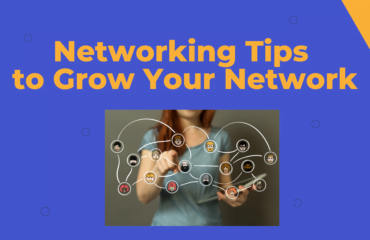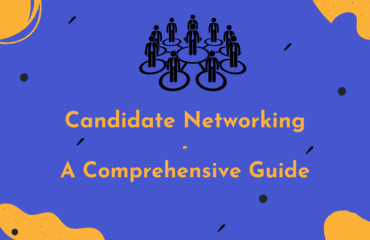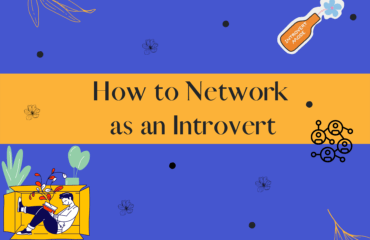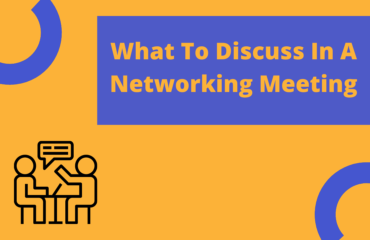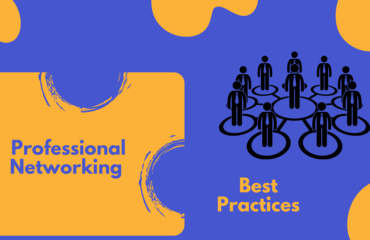Table of Contents
Professional networking has emerged as one of the most fruitful tools in the job search process. Networking doesn’t come naturally to everyone, and many consider it arduous or unintuitive. However, LinkedIn has streamlined online networking for professionals. One study showed that about 35% of professionals said a casual LinkedIn conversation led to a new opportunity.
Professional networking is the act of developing and maintaining long-term professional relationships. Networking efficiently, either offline or online, often helps professionals gain a long-term advantage and advance their careers. It’s essential to understand the purpose of networking to motivate ourselves to practice it. Let’s examine five advantages of networking in detail:
1. Finding the right job based on your personal brand
Networking empowers you to discover the opportunity that best suits you. When you reach out to people, they become acquainted with your personal brand. Your brand is the particular combination of skills, expertise, and personality you choose to project. It helps others determine whether you are the right fit for their vacancy.
The content you post and engage with on LinkedIn shapes your personal brand. It impacts potential employers’ perception of you and their decision about whether to consider you for a job. If you have built a reputation as a thought leader in your domain, you will have a distinct competitive advantage compared to other candidates.
For example, suppose you are a digital marketer and regularly engage with related content by sharing your thoughts. Your contacts on LinkedIn will become aware of your perspective and voice due to the transparency of the platform. Then, when you reach out to the relevant people, looking for opportunities, they will review your profile. Your apparent passion and enthusiasm for the targeted role will make a positive impression.
2. Obtaining valuable career advice
In addition, networking facilitates connections with people who have expertise in your target industry or company. These professionals may share their knowledge and experience with you, informing your decisions. Choosing the right people, such as industry veterans or career consultants, will help you successfully transition between jobs or careers. With their prior experience, these professionals will be able to offer guidance about how to land your dream role with your target employer.
You may also gain an opportunity to share your ideas with your new industry connections and seek feedback. Feedback received by networking with key personnel involved in the decision-making related to your applications will help you understand why your application was unsuccessful. This will greatly benefit you in your future job search endeavors. Although it’s unrealistic to expect everyone to be enthusiastic about connecting and building a relationship with you, you’ll find that more than enough professionals are willing to do so.
3. Discovering opportunities
Networking is a powerful resource in your pursuit of hidden opportunities. The hidden job market is real and holds vast potential for job seekers. For instance, you may reach out to people who know of vacancies that haven’t yet been advertised. If you’re an excellent contender for the vacancy, they are likely to contemplate hiring you or referring you for the role.
Associating with the right people can also lead you to advertised job roles you are unaware of. The new connections will introduce you to a whole new range of suitable roles. These positions may be in your acquaintance’s company or in the workplace of someone they know. According to research, more than 80% of job vacancies are filled through networking. Occasionally, an employer impressed by your potential and expertise may even create a vacancy for you if the company has sufficient resources.
4. Positioning yourself for a referral
Employee referrals are often successful and benefit both the employer and the current employee. Employers tend to view referred candidates as more trustworthy and long-term oriented. Therefore, make it your goal to master efficient networking with the right people and to hold the right skills and expertise. As a result, professionals will be elated to nominate you for your targeted vacancy.
Networking enhances your visibility among influential professionals, increasing your access to unknown options. Referrals not only open new doors but also establish you as a potential candidate. The outcome is that you gain an edge in the highly competitive job market, increasing your chances of securing the job.
5. Developing long-lasting relationships
However, networking is not always about getting a job instantly. Sometimes the focus is on maintaining relationships that benefit you in the long run. These relationships are vital aspects of a reliable network that comes through in your time of need. Networking may also help you find top prospects for collaboration such as a partner to work with you on your next project. Further, continuous interaction with your network promotes the development of crucial soft skills, such as more effective communication, confidence, and a growth mindset. Employers prefer candidates with strong soft skills; hard skills become obsolete rapidly due to constant technological advancement.
Professional networking is an indispensable component of your job search process. While it may seem difficult for some, understanding its purpose and benefits can lead to a new outlook and a motivation to engage. As a job seeker, you must take action to establish a strong network and use it to progress toward your next role. And as a professional, you’ll find there’s no substitute for a well-constructed network when looking to advance your career and gain expert insight.



